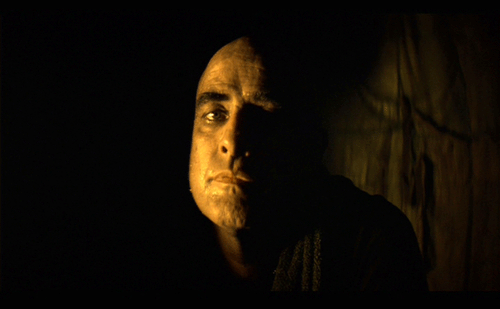More baseball. This here beaut by Pete Richmond was a “Main Event” takeout for The National Sports Daily back on August 30, 1990. It appears here with the author’s permission.
“The Sports Fan”
By Peter Richmond
The first time I called Bill Murray to see if he wanted to watch some Cubs games he insisted on reading me the Recipe of the Month from the Cubs newsletter, which was Ryne and Cindy Sandberg’s recipe for Chicken Parmesan. It didn’t sound particularly appetizing. We never found out what it tasted like, even though we did end up in Chicago, and we did end up eating a lot. We just never ate any of Ryne and Cindy Sandberg’s Chicken Parmesan. We did eat Diana Ditka’s chicken, which wasn’t anything special, especially after Bill picked up this kid who wanted an autograph and lowered his head until it was a few inches from the mashed potatoes. We also ate lamb chops with an orange sauce at a cocktail party for some of the Cubs in a men’s store that sold ties for $200, but there was nowhere to put the bones except in the pockets of the silk jackets. We also had eggs Benedict with fresh tomato slices, and some pretty good swordfish, but the most appetizing dish by far was the fruit bowl that looked like a Dutch still life in Mick Fleetwood’s hotel suite on the forty first floor. Unfortunately, he never offered us any, even though Bill was polite enough to read aloud from the unpublished science fiction manuscript written by Mick’s dad, the late Wing Commander Fleetwood of the RAF, at 3 A.M., while the rest of Fleetwood Mac drank pear brandy down at the bar.
And, of course, we ate Polish Sausages. We ate a lot of Polish sausages. In fact, the first thing Bill said when he reached our seats behind home plate in Wrigley Field during the national anthem for a 7:35 start against the Expos was, “I brought you a Polish,” and he held up a brown paper bag. He was wearing a baseball cap with the insignia of the Salt Lake Trappers on the crest. He was wearing baggy bluejeans and a black Adidas jacket with Cyrillic writing on it. Holding the bag in his left hand and his ticket stub in the right, with the brim of the cap pulled down, Bill had moved through the crowd without causing a ripple. He seems to fit in Wrigley Field the way something fits in your glove compartment that’s always there, where it belongs.
“Beer?” said the vendor who always brings her coldest case to where Bill’s sitting.
“That’s what we’re here for,” Bill said. He was right. We drank Old Style, and kept score, and talked about the 1957 Braves. The day they clinched the pennant, Bill’s dad—a lumber salesman, father of nine—drove the family up to Milwaukee and they cruised the streets in celebration, even though they were Cubs fans. He can still recite their starting lineup.
Since then, Bill has spent a lot of time in baseball parks. He had two at bats with the Grays Harbor Loggers. Now he owns part of the Trappers, the Charleston (S.C.) Rainbows, the Williamsport (Pa.) Bills and the Pompano Beach (Fla.) Miracle, which he recently visited on Gaelic night, and when he was presented with a baked potato, plain, he ate it so as not to offend his hosts.
But you’re likely to see him just about anywhere. Last autumn, for instance, in the middle of a pennant race, he leaned over the lip of the Cubs dugout in Shea Stadium in the late innings and
tried to hand a Heineken and some Cajun fries to Rick Sutcliffe, who pitches for the Cubs. Sutcliffe tried not to panic. His manager, Don Zimmer, had turned the color of a cherry tomato. “At least take the fries,” Bill said, hanging upside down. Sutcliffe didn’t even take the fries. Bill ate them. The Cubs won the division.
Bill had remembered to put everything on the Polish dogs, including jalapeños and celery salt. The girl at the Polish place on Waveland Avenue invariably gives him the best Polishes on the grill. Bill isn’t very comfortable with being treated specially, but a good Polish and a cold Old Style are two of the perks he’d be foolish to spurn, especially considering all of the drawbacks to trying to watch a Cubs game if you’re Bill, which are considerable. In Wrigley Field, for instance, he is seldom granted more than four seconds to himself, which grows quickly annoying to a man who is far more than a casual fan. (How many people do you know who know that Lloyd McLendon once hit five home runs in five at bats in Little League?)
“Are you Bill Murray or a lookalike?” said a doughy man in the bottom of the second as he walked in front of our seats. Marvel Wynne had just singled. “Are you Duffy Dougherty?” said Bill. He was trying to watch Wynne’s lead off first.
Then a guy with maximum security prison tattoos came up and said, “I know I shouldn’t bother you, so I’m going to. Bill looked at him the wav you’d look at a dead fish on the beach. The man left.
Another man came over and shoved a program in his face. “If I miss one pitch, I’m going to kill you,” Bill said. The man laughed. “I mean it,” Bill said. The man left.
“Hey Bill, l think it’s great how you support Chicago sports,” said someone else.
“I can’t do anything else,” Bill said.
Mostly Bill didn’t seem to mind, if it was between innings. When a teenage girl skipped in front of us and almost kicked over our beers, he said, “Hey, get those big feet outta here,” and when she turned around, blushing, he smiled, and she smiled back and sort of melted right there into a pink puddle. Another girl leaned over in the middle of an inning and he signed her program in mock exasperation.
“I’m only doing this because I like the way you look,” he said. She laughed. He was telling the truth. In fact, he was in a particularly good mood. A few days earlier he’d taken batting practice with the Trappers and put a few on the track, and the day before, the Miracle had taken part in the amateur draft and had picked up a couple of definite prospects. Also, Dwight Smith hit a home run in the fifth, and now Wynne hit one in the sixth—”He hit it!” Bill said, shooting to his feet, watching the arc of the ball over the ivy. But he regretted having made himself so conspicuous, for the Expos soon knocked Shawn Boskie out and took a considerable lead, and the crowd started paying more attention to Bill than to the Cubs. A woman tried to pass him a love note on an All-Star ballot, and a man handed him a cellular telephone and said loudly, “Talk to my wife.” Bill did. Faceless fans kept sending us beers, even though he kept refusing them. “You can’t get too relaxed in a military situation,” he said, and he was right: we were under siege.
“Dogs and cats, living together!” wailed someone a few rows back.
“This Ghostbusters thing is not going to go away until someone kills themselves with one of the toys,” Bill said.
In the middle innings, Mark Grace, who was suffering through a terrible slump, walked into the on-deck circle. Bill stood up and shouted “I can swing that bat!” so loudly that Grace had to turn around to see what kind of demented loon was sitting in the fifth row, and when he saw it was Bill, he couldn’t keep himself from smiling, all the while motioning frantically for him to sit back down before everyone got in trouble. I think Bill was trying to help him out of the slump, but he grounded to first base.
Finally, Nelson Santovenia hit a home run for the Expos.
“Nelson Santovenia?” Bill said softly.
It was all over but the shouting, of which there was a lot, so we ducked out a side door and went downtown for dinner.
As we drove down Lake Shore Drive in my rented Geo, Bill said, “The Cubs seemed sort of cranky.”
They had, too.
We found a restaurant that had the White Sox-Angels game from Anaheim on the television. As we found a table, Sammy Sosa threw an Angel out at the plate. It was a good sign. Bill never likes to stray too far from baseball. He keeps close tabs on the game and has many interesting theories about sports in general. One is his Civic Metropolitan Trauma Theory, whereby cities undergoing disasters and strife are likelier to be blessed with sports championships. It is not statistically verifiable, however.
Also, his theory about the National League East this year is that the team that eats the most protein will win. “That bodes well for the Mets,” he says, “because in New York, they eat their own, whereas in Pittsburgh they eat pure anthracite.”
Bill ordered the swordfish. I had the crab.
“You mind if I smoke?” he asked me. Your mother would like Bill. He has these manners. “Manners are the only thing left,” Bill said to me.
We tried to watch the White Sox game but people kept appearing from the dimness. The closer they got to the table, the more they all took on the look of subjects in a Diane Arbus photograph, or a Fellini film cast by Woody Allen.
“I want to talk to you about this idea I have for a theme restaurant—you and Belushi,” said a man waving a cigar the size of the Graf Zeppelin. (This is a recurring theme; in Pompano Beach, a woman who wanted Bill to ride on her Harley asked him. “How’s Belushi?” “He’s dead,” said Bill. “Yeah, I know,” she said, shaking her head.)
The man with the cigar kept trying to buy us drinks, although Bill was just drinking La Croix water, because it’s bottled in La Cross, Wisconsin, and they just turned it into French to sell it. Bill will drink anything made in Wisconsin.
Then another man left his woman friend at the bar to sidle up to Bill and introduce himself as a producer. He had something to do with the camera angles at Wrigley Field. About ten minutes later, when she realized that the man had no intention of summoning her, the woman sidled over, too. She was dressed in a black leotard top, and she had black hair and dark eyes and very white skin. She told us she didn’t like baseball as much as she liked hockey, which she said she liked because the athletes beat each other up. Bill and I exchanged glances.
“Are you out on the coast most of the time?” said the producer. “Yeah,” Bill said, “the East Coast.”
“Really?” said the man.
“I like the air,” Bill said.
“Yeah, but what about the females on the West Coast?” the man said, and he actually winked like Eric Idle used to in Monty Python skits.
“Well, I like to talk to the women I meet,” Bill said. The man didn’t get it. Bill was trying to watch the White Sox Angels game.
“Did you know,” he finally said to the man, “that one out of ten people comes from California? Is that frightening, or what?” The man left. Another one took his place, a much older man. “I used to know Georg’e Raft,” he said.
“I dated George Raft,” Bill said.
A woman came over to tell Bill that he didn’t seem very animated.
“I’m emotionally down because the Cubs lost,” he said. “If they’d won I’d be out ripping the antennas off cars.”
A woman came over with a glass full of clear liquor. Her eyes swam in her head the way the ice cubes swam in her glass. It apparently hadn’t been her first drink. She said she worked for the Illinois secretary of state.
“You look like the kind of person I could go on a kill spree with,” Bill said. “Knock over a few gas stations, kill a few people.” She did, too.
“Listen—I’ve struggled, darling,” she said as if she were on stage. People tend to approach Bill as if they were auditioning for really bad parts in life.
As we left the restaurant, the cigar man tried to pay the check.
Bill wouldn’t let him. As we left the guy was yelling, “Hey! Hey! Hey!” as if we’d insulted him or something.
On the street, a man in a wheelchair told Bill he’d been shot in the back because he refused to join a street gang. He asked Bill for enough money to stay in the Y. He had an upper body like Lawrence Taylor’s.
“I gotta think you could be applying yourself more, Roger,” Bill said, and Roger didn’t seem to disagree. Then Bill gave him more than enough money to stay for a night at the Y, and said that he hoped he wouldn’t see him back at the same spot on the street later that night. “I mean it,” Bill said, and judging from the expression on Roger’s face, I don’t imagine he’s returned to the spot yet.
Back at the bar in Bill’s hotel, Fleetwood Mac had a bodyguard named Roman who looked as if he’d sprung from the cellar of David Lynch’s imagination. He had a smile like he was being
shocked by electrodes. Bill asked the bartender for an aquavit. Everyone in Fleetwood Mac immediately asked for an aquavit. They were wearing a lot of silver jewelry and black clothes. Every few minutes one of them invited Bill to accompany them on their jet the next night to Columbus, Ohio. Bill smiled politely a lot. Mick Fleetwood drank everyone’s aquavit before they could, and kept saying profound things in an elegant voice. Then he invited Bill up to his suite to listen to his late father’s poetry. Bill could tell it meant a lot to Mick, so he agreed. Besides which, the band’s conversation had reached the level of chatter between tree slugs.
The poetry was pretty good. It was on a cassette. There were a couple of dozen beers arranged on ice in a huge silver bowl, like shrimp cocktails, only they were beer bottles. Mick offered us beers but none of the fruit.
Bill had an 8:30 radio appearance the next morning, so we left at 3: 15. As Mick saw us to the door, he asked me what he’d said that I’d written down on the corner of my Cubs program while we were at the bar, and so I read it.
“The English, the English,” I quoted. “The English are the hushpuppy brigade continuing to trample the world in disgrace.”
“You’re the only one who has that,” Mick Fleetwood said, nodding, with a smile. He’s right. I am.
Down on Michigan Avenue, Bill and I were the only people on the street. A very warm wind was buffeting the buildings. For some reason, it carried the scent of newly mowed grass, We agreed to meet on the same corner the next morning. Mike Harkey was starting for the Cubs, and we had good seats again.
On the radio show, someone from Elgin called in to ask him about his movie. Among other things, Elgin houses the Elgin Mental Health Center.
“Did you escape?” Bill said, “Are you one of those guys who climbs the sidewalk and kills people in his car?” The man didn’t laugh. The radio host asked Bill about the Cubs.
“I think they need a few laughs,” Bill said.
I met him on the street corner. He had a white T-shirt and a blue sweater under his arm. The cabdriver said he’d had a bad day. Bill asked him if he was the kind of cabdriver who said he’d had a bad day to get a big tip. The man insisted he’d had a bad day. Bill gave him grief most of the way. When we reached Wrigley, Bill tipped him $20 and told the man to spend it on an activity that family newspapers are reluctant to talk about, although it’s legal between consenting adults in most states.
Then we got more Polish sausage on Waveland Avenue.
A girl in a tank top with a Felix the Cat tattoo on the back of her left shoulder tried to sell him a Bart Simpson T-shirt. We were both feeling the effects of not getting much sleep, and the girl asked him why he was so crabby. I think he resisted the impulse to plant her upside down in one of the bushes. Instead he said, “That’s a nice tattoo. I bet you got one somewhere else.” If she did, she didn’t show us.
The Cubs had given us good seats again, but the team wasn’t playing any better. Our vendor wasn’t working, and the beer was never cold. In the top of the sixth the Expos scored three runs. A woman from a television network who had an anchor apprentice smile asked him to come watch her team play softball that weekend.
“Well,” Bill said, “maybe I’ll come by and insult you.”
“That’d be great,” she said.
A teenage girl asked him for an autograph.
“This girl smells really nice,” he said to me.
“Thank you,” she said. “You’re very sweet.”
“She really smelled good,” he said after she left. Another one took her place. She said her name was Jennifer.
“Jennifer, you’re a total babe,” he said. “Now go on. Get out of here.”
To a lot of people who kept coming up, he said, “You don’t understand. There’s a baseball game going on.” Once he said, “Hey! There’s a two-and-one count here!”
It was a strange game that afternoon, error-filled and back-and-forth. Bill likes games with errors. “A rally of a double and an error and another double, that’s somehow more exciting to me,” he said. “That’s the real game. Human error.”
In the bottom of the eighth it was tied. Bill had to do Siskel live in twenty minutes, back downtown. We decided to stay anyway. But then Jerry Goff hit a home run for the Expos in the top of
the ninth.
“Jerry Goff?” Bill said softly.
We found a cab and Bill said to the driver, “Can you get us to the CBS studios in eight minutes?”
“Sure,” the driver said, and I think he thought he was in a movie. He screeched the tires and missed a baby carriage by a foot and a half. We headed down Lake Shore Drive like one of those cars in a video driving game. The driver literally screeched up to the curb at CBS. A woman was holding the doors open, looking at her watch. Bill said, “Excuse me,” and ducked into the men’s room. He came out a moment later wearing the clean T-shirt and the blue sweater. He’d stuck his head under the sink and combed all his hair straight back. Siskel was wearing clothes that looked like he’d stepped out of a Brooks Brothers catalogue six minutes ago. The anchor people segued into Siskel and Bill.
“Bill Murray’s movies,” Siskel said, by way of introducing Bill, “average one hundred million dollars gross,” as if it had anything to do with anything. Bill didn’t get animated until Siskel asked him about the Cubs. When Siskel asked him how the studio had come to let him direct his latest film, Bill said. “Sometimes when it’s three-and-oh, they let you swing away.”
Outside the studio, back on the street, Bill’s studio’s publicist had produced a limousine the size of a stretch DC-9. He’d been trying to get Bill to ride in limos for two~days. This time Bill acquiesced, as a favor to the publicist, who belongs to the age when publicists knew how to publicize, but liked nothing more than making their stars feel like stars. He’d say things to Bill like, “Need anything? Plane tickets? Money?” And Bill~would say, “No thanks.” In the back of the limo, the publicist had Paris on the car phone, and so Bill talked to Paris for a minute. There were crystal glasses in the bar, but there wasn’t any time to use them because the hotel was about six blocks from the CBS studio. In fact, the limo was so big we probably could have gotten in one end at the studio and gotten out the other at the hotel without the car actually moving.
Bill’s hotel room was on the forty-fourth floor, facing north. You could see Greenland. A basketball sat in a window sill, looking north up the shore of the lake like someone pining away for something.
Bill changed into a purple shirt and blue jeans and we crossed the street to the cocktail party introducing the Chicago Cubs calendar. Jerome Walton was wearing enough jewelry to anchor a Japanese supertanker. We took some vodka-and-tonics off the trays that kept arriving on the arms of tuxedoed young men, and lamb chops with orange sauce. I put my bones in mv pocket, in
their napkins.
Mark Grace introduced Bill to a guy with long hair and a cowboy hat. He was the lead singer of a band called Restless Heart. They are apparently very big in white baseball circles. The Cubs all seemed relieved to have Bill to talk to, instead of having to talk to the other guests at the party, who clearly did their shopping at this store, but were not acting as cool as you’re supposed to act when your shirt costs $190. They clotted around Bill so that eventually he had to stand behind the sales counter. A man in a $6,000 suit—I’d guess—asked him what his plans were.
“I’m supposed to be making a movie in the fall,” Bill said, “but I’m going to try and get out of it.”
“Oh,” the man said, and went to look for the bar, which was up near the neckties.
We took a cab to Ditka’s. At a stoplight we stopped next to a Mercedes painted the color of mold, driven by a woman in dark glasses with a scarf over her hair. Bill leaned out the window.
“Nice color!” he said. “Hey, I’ll bet $10 you just quit smoking and drinking!”
When the light changed, she didn’t move. She looked as if someone had just hit her with a cattle prod.
We joined Grace and Sutcliffe and Steve Wilson and the lead singer of Restless Heart at a table in the Hall of Fame Room, where a man played lounge songs on an electric piano with a plaque that read “Myles Green at The Piano.” Myles was exactly like the lounge singers Bill used to imitate, and by the size of his smile when he recognized Bill, you’d have thought he sensed the irony of it all, but judging by the music he played, he apparently didn’t.
There were about thirty-five televisions up on the walls, all showing a Giants Cardinals game. Every time Will Clark came up, Mark Grace watched very intently. The Cubs asked Bill about his movies.
Bill steered the conversation back to baseball. He told them they’d probably turn it around on the West Coast trip.
“I’m going to give you guys a joke book,” Bill said. He was convinced they weren’t having enough fun this year. He was right. “We need it,” Grace said.
“We need something,” Sutcliffe said.
Bill ordered Diana Ditka’s chicken. It had a sauce with a lot of peas in it. When the kid showed up asking for an autograph, Bill shot out of his chair, grabbed the kid by the lapels of his shirt, picked him up two feet in the air and lowered him onto the table a few inches from Diana Ditka’s peas, and shook him in mock anger. The kid was laughing. Bill let him up and signed the autograph. Then, just when the kid thought he was safe, Bill grabbed him and did it again. The Cubs were more or less falling out of their chairs.
I think Bill was doing it for the Cubs, so they’d start winning.
Then a woman with white-blonde hair in a black leather skirt, black halter top, exposed midriff, and a lot of S&M jewelry came over and handed Bill a piece of paper to sign.
He wrote, “Judy: Don’t Let Them Behead Us. Bill.”
“What does it say?” she said, peering at it closely. He read it aloud. She left.
On the walk back to the hotel, Bill found a baseball hat with elephants on it in the window of a tie store. He wanted to buy it for Jerome Walton, but the place was closed. It started to rain and we ducked into a piano bar in the lobby of a nice hotel. We each had a Pernod and water. No one recognized him. The pianist was much better than Myles, but since he hadn’t pasted a plaque with his name to the piano, we never found out who it was.
Back at Bill’s hotel, no one was in the bar. Fleetwood Mac had gone to Columbus, but Bill’s family had arrived in the RV. It was one of the great trades of all time.
At breakfast the next morning, Bill’ son Homer brought a baseball to the table and tried to cut it with a knife and fork while we were waiting for the eggs to come. Homer is a catcher. He once started a triple play with the bases loaded by grabbing a bunt, stepping on home, and throwing to first, where the first baseman threw on to third. He’s such a catcher that the thing he loves most is blocking the plate and getting run into and holding on to the ball, and he’s only eight. Luke, who is five, had the glove he’d given Bill for Father’s Day. It was a beautiful glove. They were all en route to a vacation. But there was one more Cubs game to go to.
We took the Geo to Wrigley, up Lake Shore Drive, past picnics and beachgoers, and got a good parking place in the lot across the street. Before the game Bill hung out with Zimmer in his office while Grace got bubble gum for Homer and Luke. In the Cubs weight room, Sutcliffe told us Cubs stories. Sutcliffe asked where the seats were, and Bill said,”Up among the weird and the damned.”
But on this day, the crowd was soft and comfortable, and it was a fine day for a baseball game. Someone gave Bill a Twizzler and didn’t ask for anything in return, and he took it. All afternoon, Luke’s green eyes lit up the whole ballpark, and after he saw everyone asking Bill for autographs, he handed his baseball to Bill, and Bill signed it “Dad” and gave it back to him, and Luke tucked it into the pocket of his glove.
Bill’s putting the kid in Diana Ditka’s peas to make the Cubs laugh had worked, because on this afternoon, Grace broke out of his slump, and Sandberg hit two home runs—two!—and Jeff Pico won easily. The vendor with the nice smile was back, and all of her beer was cold enough to freeze the roof of your mouth.
In the seventh, Larry Walker hit a home run for the Expos.
Bill said, “Larry Walker?” in a soft voice.
But the Cubs won easily.
Outside in the parking lot we made plans to see the Miracle. Then he went on vacation and I went to Wyoming. On the plane I read a magazine with Bill on the cover. At the beginning of the story about Bill, the writer said that Bill seems like the kind of guy you think you can go to baseball games with, but you can’t.
He was wrong. You can. You should try. Really. For one thing, you get the coldest beers.

























































